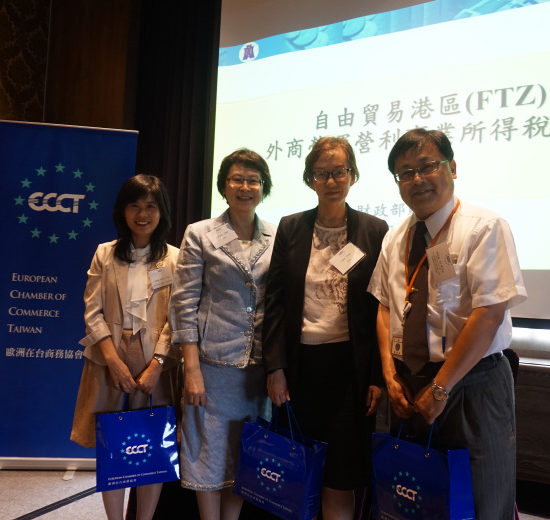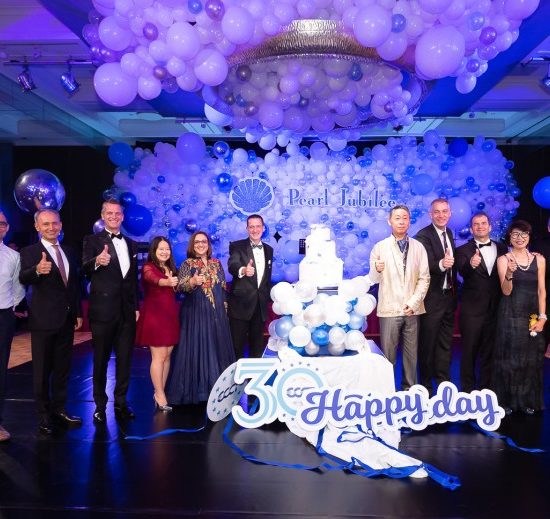Sustaining well-being and performance in a challenging world

The ECCT's Education committee hosted a lunch on the topic "Sustaining well-being and performance in a challenging world – The five foundations for success from the science of what make’s life worth living!" with guest speaker Clive Leach, International Executive, Leadership and Career Coach. The speaker shared how positive psychology or the science of what makes life worth living is being applied globally within the business, government and education sectors. In his presentation he cited a number of recent research studies and drew on his own international coaching experience working with people from a wide range of professional backgrounds, including an ongoing well-being programme at the Taipei European School (TES).
He made the point that everyone faces challenges, regardless of their age, job or social status. The objective of the work that Leech does is to help people to reach a “flourishing state” whereby they are feeling good and functioning at their optimal best. A lot of people feel good or function well or feel good at home but not at work or vice versa but it is not common for them to achieve a fully flourishing state. According to Leech, about 20% of people are in a flourishing state while the rest are either distressed and disengaged, distressed and functional or simply plodding along.
He went on to share how leaders, executives and educators can apply evidence-based approaches to enhance their own and others’ well-being, resilience, mental toughness and achievement in work, study and life. This is vital because, in today’s VUCA (Volatile, Uncertain, Complex & Ambiguous) world, safeguarding one’s capacity to feel good and function well in the face of challenges and opportunities is an increasingly important requirement.
The five foundations to enhancing well-being, engagement and performance in work, school and life are set out in the PERMA foundations:
Positive emotion: Focusing on positive emotions such as joy, hope, gratitude, pride, serenity, amusement, curiosity and love has been shown to broaden one’s capacity to see the big picture, learn and build resources. Stress can serve a useful purpose to spur action, as long as it does not become overwhelming. If people become overwhelmed by negative emotions, they need to take a step back, look at their circumstances in context and take time to focus on the positive, such as reflecting on previous achievements or engaging in gratitude and mindfulness exercises.
Engagement is about understanding one’s strengths. These are easy to use because they come naturally and, when used effectively, help to reduce anxiety and improve performance. Successful people tend to be people who understand their own strengths but are also able to ask for help.
Relationships: Like the butterfly effect, small interactions with other people can have much wider positive impacts. Positive relational energy uplifts all parties involved. Good leaders can identify those people who are positive energisers and harness this energy for positive change or action.
Meaning: This is a sense of connection to something bigger. What is one’s mission in life? Does one’s life make sense? Is one in the right place and does one’s life add worth?
Accomplishment: This is not the same as achievement since it also includes striving for some goal(s) and making progressive steps towards the goal(s). Setting ambitious goals helps to focus the mind and keep striving.
Companies would do well to focus on each of the PERMA foundations to help build resilience and mental toughness which are needed for people to deal with stress and pressure and perform at their best irrespective of circumstances. The speaker also argued that you need to be pro-active in protecting against the increasing levels of anxiety, stress and depression being reported in both adults and young people, which have a negative impact on engagement, performance, productivity and profitability.
The speaker concluded with five tips in line with the PERMA foundation to enhance well-being, resilience and mental toughness: Connect (with people), take notice, be active, keep learning and give.


